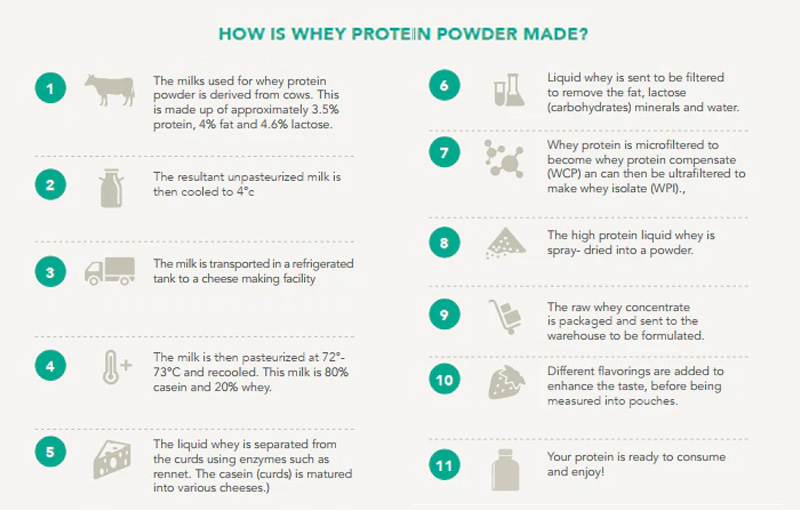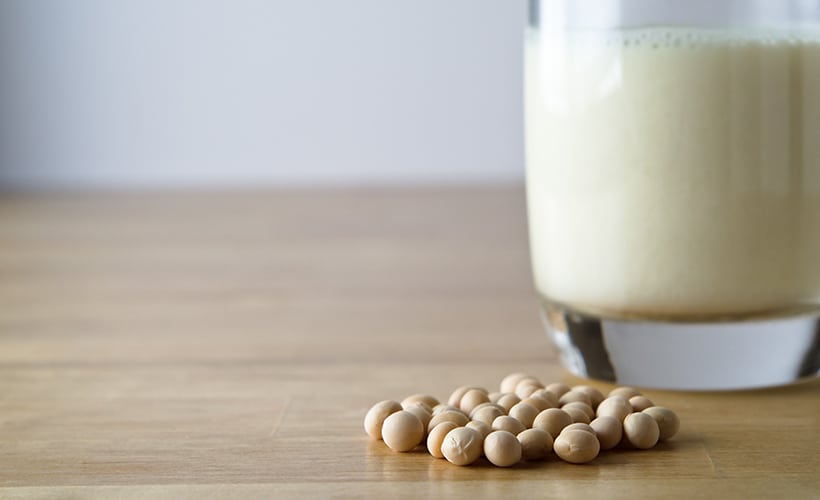Is Whey or Plant Protein Better?
With so many protein powders on the market, shopping can drop from fun to frustrating very quickly when you don’t know what you are looking for. This quick and easy checklist will help you navigate through the complex task of choosing what is best for you.
1. Figure out how much protein you need: It is highly recommended to spend 1-2 days writing down everything you eat on that day. Then using the list under the ‘which foods are high in protein’ topic or by entering your food into an app like Myfitnesspal or Easy Diet Diary and calculate how much protein you are currently consuming each day.
This will allow you to determine if it is just a small top-up you need to meet your requirements or whether you’re really lacking in the protein department. Unless of course recommended by a health professional.
Also, have a think about your current exercise regime. If you are mostly working out at a high-intensity or weight training, you are going to need much more than a yogi.
2. Determine your health and wellbeing goals:
- If your ultimate goal is to gain and strengthen muscle, whey protein will likely suffice.
- If you want to consume a vegan or vegetarian, choose a plant-based protein powder.
- If you are watching your sugar intake, choose a whey protein isolate with sugars removed.
- If you strive for a high fibre diet, or perhaps are following a low-carbohydrate diet then a hemp or pea protein powder high in fibre could be a good fit.
3. Factor in your dietary restrictions: Do you need to choose a protein powder low in lactose? If you suffer from upset stomachs frequently after taking protein powder or avoid lactose and dairy products, pea protein may be your best bet.
If you’ve tried a lactose-free powder and the stomach aches continue, choose a protein powder low in artificial sweeteners.
4. Budget: Consider how much you are willing and able to spend on your protein powder. Gram for gram, this will ideally cost less than a wholefood alternative.
5. Taste: Choose a protein powder that you’re going to enjoy the taste of or the reality is you probably won’t use it.

What Makes A High-Quality Protein Powder?
Just because protein powder is classed as a ‘supplement’ doesn’t mean it should be treated any different than a quality wholefood. The same criteria you already use to tell the difference between high quality fruit, vegetables and meats can be applied the same way to choosing a quality protein powder.
The Ingredients List: Check the ingredients list! The list is written with the most prominent ingredient at the beginning and the least at the end. Of course, our first checkbox is making sure protein is the first ingredient. Second checkbox is the size of the list, the less ingredients listed the better the protein powder and the more natural the product is. Check that the list contains no filler ingredients that may have been added to bulk out the product and rip you off. Some common filler ingredients include flour and milk powders. Another common method for companies to cut costs is creating protein ‘blends’ whereby higher and lower quality protein powders are blended together.
Flavour: You may have seen the term “natural flavours” on the ingredients list of your protein powder, and most people would automatically assume the best given the word ‘natural’.
Unfortunately, the term can be pretty misleading at times. Natural flavours are created using substances extracted from plants or animals. Very few natural flavours come directly from the food they replicate the taste of. Food chemists often mix the original flavour source with different chemicals to enhance the flavour and increase its shelf life. Additionally, some of the natural flavour sources may come from genetically modified plants.
If you’re looking for an authentic taste and added health benefits, choose protein powders that use organic flavours.
Sweeteners: Artificial sweeteners can result in bloating and stomach discomfort for some people and their effects on gut health have been poorly studied. Check that there haven’t been artificial sweeteners or too much glucose, sucralose or dextrin added to the product. These are used to give taste or thicken the product. High-quality protein powders will contain natural sweeteners if any at all.
Price: If the price is too good to be true, then it probably is. Protein powder is expensive, and more often than not, the price resembles the quality of the product. High-quality products contain high-quality ingredients that cost more to source, simple as that. And just like food there can be substantial differences in the products results and nutrients your body receives.
The Brand: Do your research. Check in on the brand’s website to see what the company stands for, where their products are sourced from and whether their ethical and moral practice aligns with your own.
Final Word
Both animal and plant proteins have rather different pros and cons and it does not have to be a choice of one or the other. Rather than focusing on consuming only one type of protein, eating a balanced source of protein-rich foods may be favourable for health.
Remember that protein powders are there to supplement a healthy diet and not completely sustain it. If you life an active lifestyle or have dietary preferences that lean toward the use of a protein powder be sure to use the same factors in choosing a quality protein powder that you would wholesome, quality food.
Reshared thanks to Go Good. Visit Go Good to check out more articles





















Community